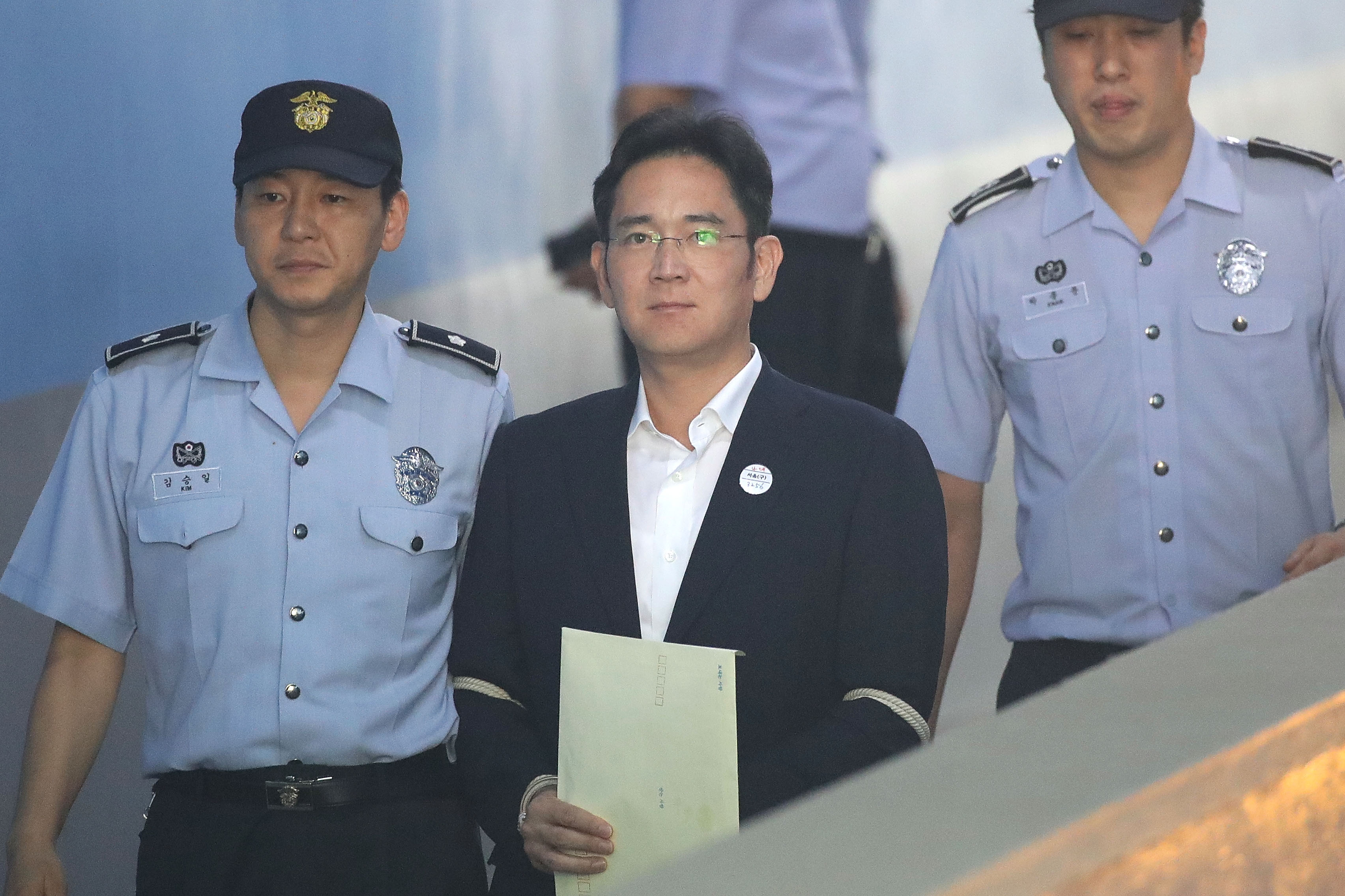
In 2016, Samsung faced a public relations disaster when 2.5 million of its Galaxy Note 7 cellphones were recalled because of faulty lithium-ion batteries that caused phones to explode. In a quieter scandal, Samsung’s vice president Lee Jae-yong, the company’s de facto chief executive, was arrested earlier for bribing the former president of South Korea Park Geun-hye and her top advisor Choi Soon-sil in order to facilitate a merger between Samsung and Lee’s holding company. The scandal has had wide-ranging effects on South Korea as a whole because of the overwhelming presence Samsung has on the country’s economy (around 15% by some estimates) and daily life.
Lee was sentenced to five years in prison Friday — a shorter term than prosecutors sought in the so-called “trial of the century.” But it’s a hefty sentence for the head of a huge conglomerate and commensurate for a scandal that partially led to the impeachment of President Park:
“The public is disappointed that this kind of large-scale crime caused by cozy relations between politics and business still happens—it’s not in the past but remains a reality,” Judge Kim Jin-dong said in court. He also laid some of the blame on Park, saying the former president made “aggressive demands” of Samsung.
Lee was found guilty of bribing Park, perjury, concealing criminal profits, embezzlement, and hiding assets overseas. His lawyer said they would appeal immediately.
According to analysts, it’s not uncommon for South Korean executives to be convicted of financial crimes and it’s sometimes considered “a rite of passage.” Lee’s father was twice convicted and twice pardoned. Four other Samsung executives were found guilty of corruption charges for their role in the scandal and received shorter sentences.
A spokesman for new South Korean president Moon Jae-in said that he hoped that Lee’s case would be “an opportunity to eradicate the longstanding cozy relations between politics and business, which have been an obstacle to further advancing our society.”
(Via CNN)
